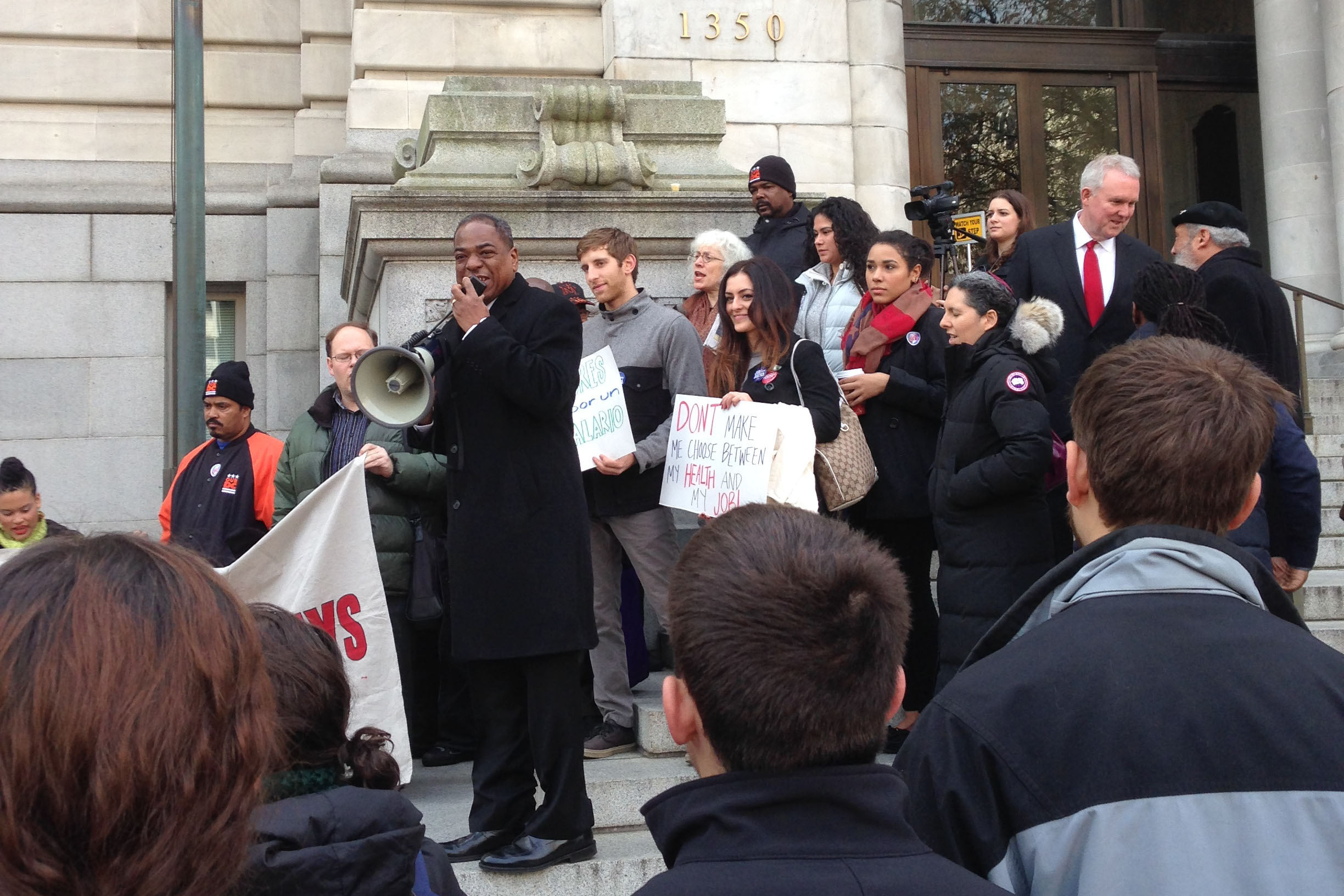The D.C. Council unanimously passed the Minimum Wage Amendment Act of 2013 on Tuesday, which will increase the minimum wage by 40 percent from its current rate of $8.25 to $11.50 by July 1, 2016. The Council also unanimously passed the Earned Sick and Safe Leave Act of 2013, which will ensure that workers in the District are entitled to at least five paid sick days per year.
D.C. will now have one of the highest minimum wages of any major U.S. city by 2016. The wage will also be indexed to the Consumer Price Index after July 1, 2016, which will mean the wage will automatically rise with inflation in CPI and not require annual reevaluation.
Several Councilmembers consider the bill’s passage a major victory for the city’s working class. “By increasing our minimum wage, we are raising the standards for all of our workers and sending the message that their labor is worth a fair wage,” wrote Councilmember David Grosso (D-At Large) in an email to the Voice.
Rachel Pugh, director of media relations at Georgetown, confirmed in an email to the Voice that Georgetown will pay the District’s official minimum wage but would have to face challenges with reorganizing pay and hiring.
“As you know, the University is currently confronting real financial constraints. We are thoughtfully working on how to implement any changes related to increased minimum in the coming years,” she wrote. “In addition, many hourly employees (those working more than 30 hours/week) at Georgetown are already paid above the proposed minimum wage.”
Jonalyn Ware-Greene, associate vice president and business officer of the Planning and Facilities Management Department, said that the University will pay all students the minimum, if not more. “If there is a change in the minimum wage, our office would be directed by Human Resources and Student Employment about raising our wage minimums,” she wrote in an email to the Voice.
The bill will not affect on-campus businesses covered under the Just Employment Policy, which are already required to pay $15.87 per hour for full-time personnel, according to Joelle Wiese, associate vice president for auxiliary business services. Other part-time contracts will require changes to ensure pay reaches the minimum wage.
The D.C. Council will have a final vote on the minimum wage bill in a special legislative session on Dec. 17.







GU has had a minimum wage of $13/hour for full time (30+ hours/week) employees since July 2013. Considering the escalation clause for the new DC wage of $11.50 doesn’t take effect until 2016, it won’t be until around 2021 that the DC wage exceeds $13 (assuming 3% inflation every year after 2016, which is probably too high an estimate). On the other hand, GU does NOT pay contractors $15.87 in wages/hour. GU pays $15.87 in total compensation. Total compensation is the amount of the wage paid by the contractor, plus benefits. Contractors will now have to pay their employees the minimum wage, add the cost of benefits, then add their profit, which will then be the hourly rate charged to GU. That will have an impact on GU.